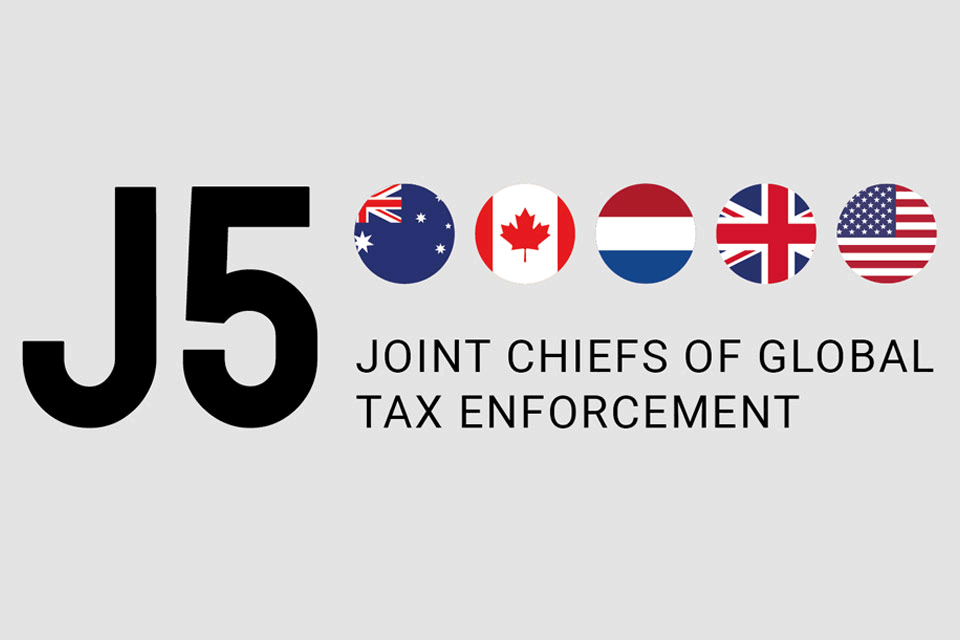The J5 group—Australia, Canada, Netherlands, UK, and US—has released a report examining how fintech is used to facilitate tax evasion and money laundering.
The Joint Chiefs of Global Tax Enforcement (J5) released three reports today – “Identity (ID)-Based Crimes,” “Misuse of Financial Technology (Fintech) to Enable Tax Evasion and Money Laundering,” and “Trade-Based Money Laundering in Plastic Waste.” Members of the J5’s Global Financial Institutions Partnership (GFIP) developed the documents for use by organizations involved in the prevention, detection, response and proactive mitigation of threats to the global financial system.
This announcement was made by The Joint Chiefs of Global Tax Enforcement (J5) on 10 June 2025.
The reports include:
Misuse of Fintech to Enable Tax Evasion and Money Laundering
This strategic threat assessment considers how fintech has introduced new challenges for authorities. Traditional tax evasion and money laundering methods are being supplemented and even replaced by arrangements using fintech, allowing the rapid movement of significant proceeds from tax evasion without direct involvement by banks. The assessment highlights key areas, including the use of nested services and virtual assets to anonymize and conceal, the use of fintech to store and transfer illicit funds, and the use of fintech to convert to and from fiat currency.
This typology report provides an overview of how ID-based crimes impact the public and private sectors. It details common behaviors and methods used in ID-based crimes, as well as how these crimes erode trust and security of businesses and government organizations. The report notes potential mitigation strategies and risk factors to be aware of in detecting potentially fraudulent activity. Emerging technologies such as digital IDs, enhanced biometrics and artificial intelligence will continue to be mitigation tools in combatting illicit finance typologies.
Trade-Based Money Laundering in Plastic Waste
This know-your-sector document outlines the economic chain of international trade in public waste, with a focus on plastic waste. It explores the regulatory environment designed to enhance the Netherlands’ resilience to risks in the plastic waste economy. The document presents import and export statistics from both the UK and the Netherlands.
It also examines the complex international trading process of plastic waste, which involves several stages and various actors. These complexities may be exploited for illegal activities, such as trade-based money laundering. By understanding these dynamics, stakeholders can better address vulnerabilities and improve oversight within this global sector. Improved transparency and cooperation are key to mitigating these risks.
The J5’s GFIP serves as an international public-private partnership, leveraging the combined capabilities and resources of both public and private sectors to support the J5 mission. By bringing together expertise from across sectors, the GFIP strengthens the joint response to tackling transnational tax crime, delivering an enhanced approach to shared global challenges.
The J5 works together to gather information, share intelligence, and conduct coordinated operations against transnational financial crimes. The J5 includes the Australian Taxation Office, the Canada Revenue Agency, the Dutch Fiscal Intelligence and Investigation Service, His Majesty’s Revenue and Customs from the UK, and the Internal Revenue Service Criminal Investigation from the US.

















